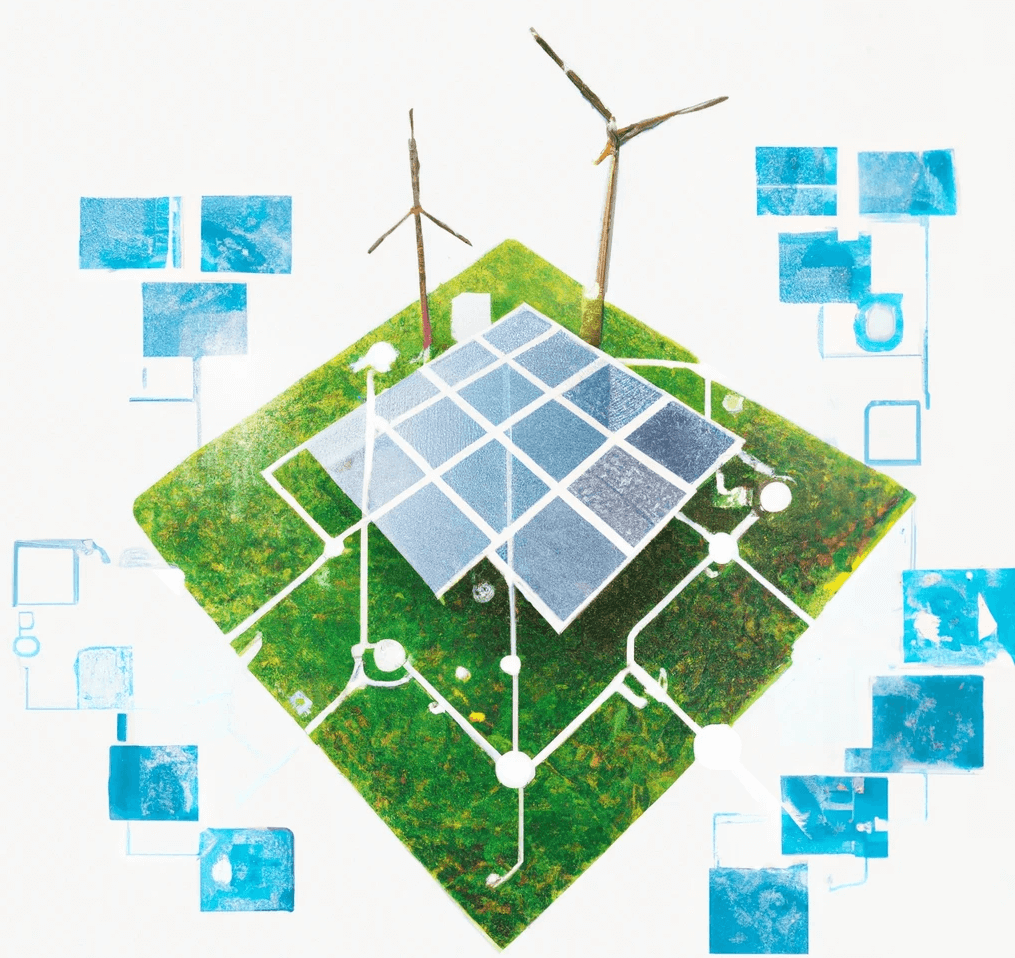Sustainable energy (30. mars 2023)
Sustainable energy has emerged as a key component of modern smart cities, as they strive to become more energy-efficient, reduce their carbon footprint, and enhance the quality of life for their residents. But what role will sustainable energy play in a smart modern city and what are the potential benefits of it?
Sustainable energy refers to energy sources that are renewable, emit little to no greenhouse gases, and have minimal impact on the environment. These sources of energy include solar, wind, geothermal, hydroelectric power, and depending on who you ask, nuclear energy. In a smart modern city, sustainable energy can be used in various ways to achieve energy efficiency and reduce carbon emissions. So, what are some key aspects of sustainable energy?
Renewable Energy Generation
One of the most significant roles of sustainable energy in a smart modern city is renewable energy generation. Smart cities leverage renewable energy sources like solar, wind, and hydropower to meet their energy needs. These sources of energy are clean, sustainable, and can provide a significant portion of a city’s energy requirements.
Smart systems can monitor energy production from renewable sources in real time and optimize energy distribution to meet energy demand. By relying on renewable energy sources, smart cities can reduce their dependence on fossil fuels, lower carbon emissions, and improve their environmental footprint. This is of course important in terms of environmental change, but also a great benefit to citizens who will breathe in less polluted air.

Energy Storage
Energy storage is another critical aspect of sustainable energy in a smart modern city. Technologies that enable energy storage such as batteries, flywheels, and compressed air can store excess energy generated from renewable sources. This allows for a more stable and reliable energy supply, as well as helps to balance the grid during peak demand periods. One project that we at IFE are looking into, called V2X, is investigating the possibility of using batteries in electric cars to power buildings to offset the peaks in the power grid.
Imagine you charge your electric car overnight when the power demand is low compared to mornings and afternoons. You drive to work and come back in the afternoon, still having a good amount of power left on the batteries in your car. Instead of plugging a power cable into your car to charge the batteries, you plug a power cable into your car to power the building you live in.
This might seem like a drop in the ocean but considering the great number of electric cars in each country, this could help reduce the stress on the power grid during peak times. Another project that we are a part of is www.Dataarena.no. This project is developing a simulation of a power grid that will allow new businesses and industries to seek out available capacity in the power grid and locate their new buildings and power-consuming activities there. This will hopefully prevent the power grid from being overloaded in specific regions, and ensure free capacity is used before building more. The project also has the main goal of ensuring the socioeconomic development of the power grid. By focusing on collocation, we will ensure a more beneficial use of the already existing infrastructure, instead of building more capacity when it’s not needed.
Smart systems can monitor energy storage and adjust storage capacity to match energy demand, ensuring that energy is stored and distributed efficiently. Energy storage also enables energy users to store energy during low-demand periods and use it during peak-demand periods, reducing the need for new power plants and optimizing energy use.
Energy-Efficient humans
Smart cities can encourage the construction of energy-efficient buildings, which reduce the amount of energy required for heating, cooling, and lighting. This can be achieved using energy-efficient materials, insulation, and smart building systems that monitor and optimize energy use. Smart building systems can adjust heating, cooling, and lighting based on occupancy, reducing energy waste, and optimizing energy use.
This is of course great, but perhaps equally important, is to make sure that humans are energy efficient. By that, we are of course talking about our habits and consciousness when it comes to wasteful behavior. One of our key competencies at IFE Digital Systems is knowing how humans act and behave. We know how we can get humans to understand why they must change their ways, and how we can build competence and good habits at a consumer level. The technology that surrounds us is developed faster than our collective minds can comprehend, this is where we come in.
We create understanding in the intersection between humans, technology, and the work systems, this is essential in achieving a real change in behavior. Reducing wasteful habits and ensuring that our energy is used only when necessary, represents an enormous potential in saved energy. Therefore, we must put work into creating understanding between individuals and systems. This is something we at IFE DS can help your organization with. Do you know want to know what kind of potential your organization has? Contact us.